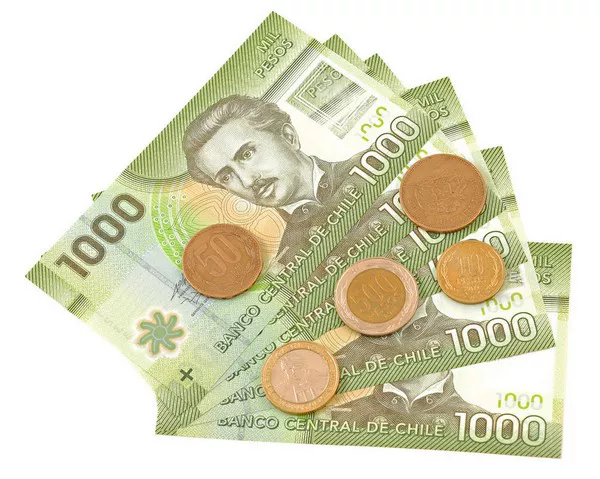Switzerland is a small, landlocked country located in the heart of Europe. Despite its size, the country has played an important role in the world economy for centuries. One of the most notable aspects of Switzerland’s economy is its currency, which is known as the Swiss franc. In this article, we will take a closer look at the Swiss currency, its history, and how it functions today.
Introduction to Swiss Currency
The Swiss franc (CHF) is the official currency of Switzerland and Liechtenstein. It is one of the few currencies in the world that is still backed by gold reserves and is considered one of the strongest and most stable currencies in the world. The Swiss National Bank (SNB) is responsible for issuing the Swiss franc and regulating the country’s monetary policy.
History of Swiss Currency
The first Swiss franc was introduced in 1798, at the time of the Helvetic Republic, which was a period of political turmoil in Switzerland. Before the introduction of the franc, there were many different currencies in use throughout Switzerland, including coins issued by various cantons. The franc was designed to unify the country’s currency system and make trade more efficient.
Over the years, the Swiss franc has undergone many changes. In the early 20th century, the country abandoned the gold standard and began to issue paper currency. During World War II, the Swiss franc became a safe haven currency for investors around the world, which helped to solidify its reputation as a stable currency.
In 1971, the United States abandoned the gold standard, which led to a period of inflation around the world. However, the Swiss franc remained stable thanks to the country’s prudent monetary policy and sound economic fundamentals. Today, the Swiss franc is widely regarded as one of the safest and most stable currencies in the world.
Features of Swiss Currency
Some of the key features of the Swiss currency include:
1. Gold Reserves
One of the most notable features of the Swiss franc is that it is still backed by gold reserves. This means that for every Swiss franc in circulation, the Swiss National Bank holds an equivalent amount of gold. This gives the currency a degree of security and stability that is unmatched by many other currencies.
2. Safe Haven Currency
The Swiss franc is widely regarded as a safe haven currency, which means that investors tend to flock to it during times of economic uncertainty or geopolitical turmoil. In fact, during the 2008 financial crisis, the Swiss franc was one of the few currencies that actually appreciated in value.
3. Neutral Political Environment
Switzerland has a long history of political neutrality, which has helped to make the country an attractive destination for foreign investors. By remaining neutral in times of conflict, Switzerland has been able to maintain strong economic ties with countries around the world.
4. High Value
The Swiss franc is one of the highest-valued currencies in the world. As of June 2023, one Swiss franc is equivalent to approximately US$1.10. This high value reflects the strength and stability of the Swiss economy.
How Swiss Currency Functions Today
Today, the Swiss franc is one of the most widely traded currencies in the world. It is used for a wide range of purposes, including international trade, investment, and tourism. The Swiss National Bank plays a key role in regulating the currency’s value through its monetary policy.
One of the ways that the SNB regulates the value of the Swiss franc is by setting interest rates. When interest rates are low, it becomes cheaper to borrow money, which can stimulate economic growth but can also lead to inflation. When interest rates are high, borrowing becomes more expensive, which can slow down economic growth but can also help to prevent inflation. The SNB also uses other tools, such as currency intervention, to influence the value of the Swiss franc.
Tips for exchanging currency in Switzerland.
If you’re looking to exchange currency in Switzerland, here are a few tips to keep in mind:
1. Use ATMs: ATM machines are widely available in Switzerland and usually offer the best exchange rates. Be sure to check with your bank regarding any foreign transaction fees that may apply.
2. Avoid exchanging at airports or train stations: These places often have higher exchange rates and fees than other locations.
3. Shop around: Compare exchange rates at different banks and exchange bureaus to find the best deal.
4. Use credit cards: If possible, use a credit card that doesn’t charge foreign transaction fees for purchases instead of exchanging cash.
5. Consider using online services: Some online services like TransferWise or Revolut offer competitive exchange rates and low fees for international transfers.
6. Don’t exchange too much cash: It’s always a good idea to carry some cash with you when traveling, but avoid carrying large amounts of cash. Instead, try to use credit cards or online payments whenever possible.
Overall, the key is to plan ahead and be informed about your options before you need to exchange currency in Switzerland.
Conclusion
In conclusion, the Swiss franc is a unique and important currency that has played a significant role in Switzerland’s economy for centuries. Its gold reserves, safe haven status, neutral political environment, and high value make it one of the most stable and secure currencies in the world. While the Swiss National Bank plays an important role in regulating the currency’s value, the Swiss franc’s reputation as a stable and reliable currency is largely the result of Switzerland’s strong economic fundamentals and prudent monetary policy.


